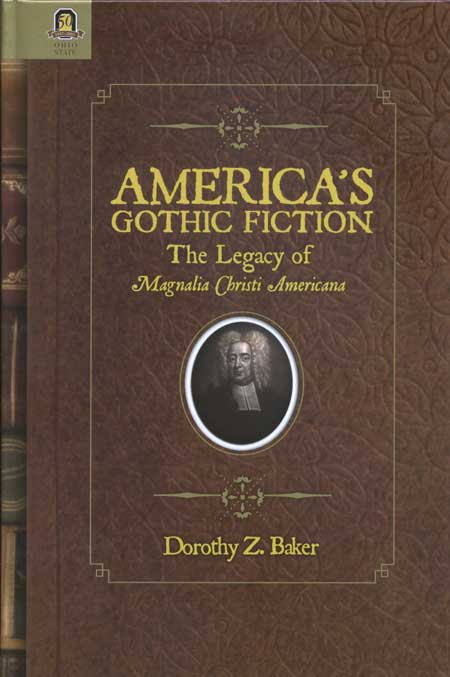America’s Gothic FictionThe Legacy of Magnalia Christi AmericanaDorothy Z. Baker |
 7/11/2007 Literature and Criticism/American 161 pp. 6x9  $125.90 ebook 978-0-8142-7203-9 Add ebook to shopping cart $62.95 cloth 978-0-8142-1060-4 Add cloth to shopping cart $14.95 CD 978-0-8142-9144-3 Add CD to shopping cart Shopping Cart Instructions Review/Change Shopping Cart & Check-out | |||
|
“This is a fresh, insightful, and illuminating book that builds appreciation for all the writers Baker considers. It makes valuable contributions to understanding of an immensely engaging topic and opens up possibilities for additional study of providence narratives and the American literary imagination.” —Jane Donahue Eberwein, Distinguished Professor of English at Oakland University “In terms of style and ease of reading, America’s Gothic Fiction is not only surefooted but also first-rate! It is a polished, easy-to-follow, yet never repetitious or platitudinal, piece of scholarship that readers of all backgrounds will welcome as a wonderful addition to their bookshelves.” —Reiner Smolinski, professor of English at Georgia State University Secretary to the Salem witch trials, Cotton Mather is the most reviled of our national historians. Yet James Russell Lowell admitted that “with all his faults, that conceited old pedant contrived to make one of the most entertaining books ever written on this side of the water.” In America’s Gothic Fiction, Dorothy Z. Baker investigates the ways in which nineteenth-century authors Edgar Allan Poe, Harriet Beecher Stowe, and Nathaniel Hawthorne, among others, look to Mather’s Magnalia Christi Americana at critical moments in their work and refashion his historical accounts as gothic fiction. Cotton Mather’s 1702 Magnalia captured the imagination of its readers more than any other colonial history and impressed Americans with its message of American exceptionalism and God’s dramatic intervention on behalf of the country and its citizens. Poe, Stowe, and Hawthorne, who are rarely grouped together in literary studies, have radically divergent responses to Mather’s theology, historiography, and literary forms. However, each takes up Mather’s themes and forms and, in distinct ways, interrogates the providence tales in Magnalia Christi Americana as foundational statements about American history and identity. Dorothy Z. Baker is associate professor of English at the University of Houston. | ||||

